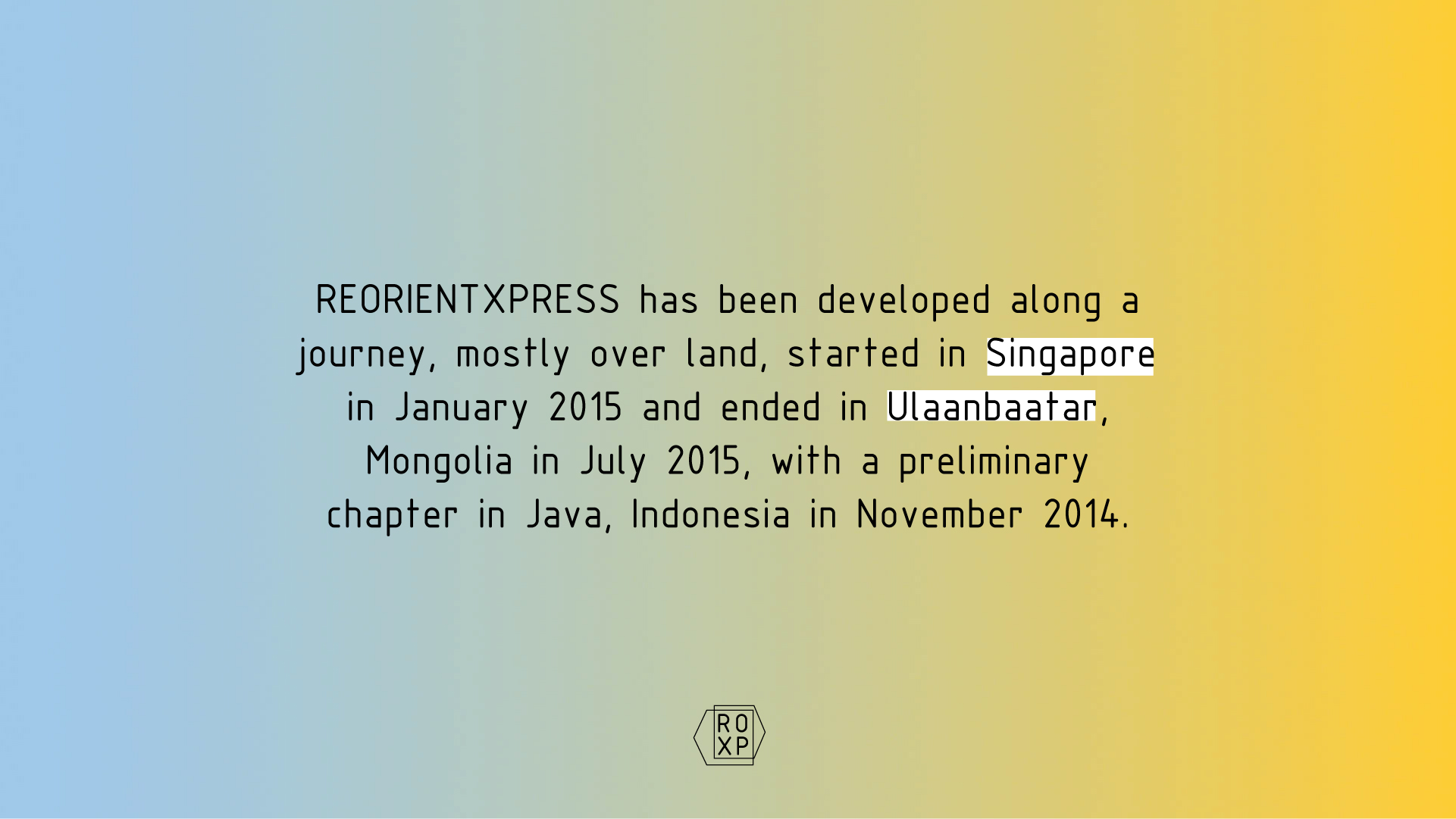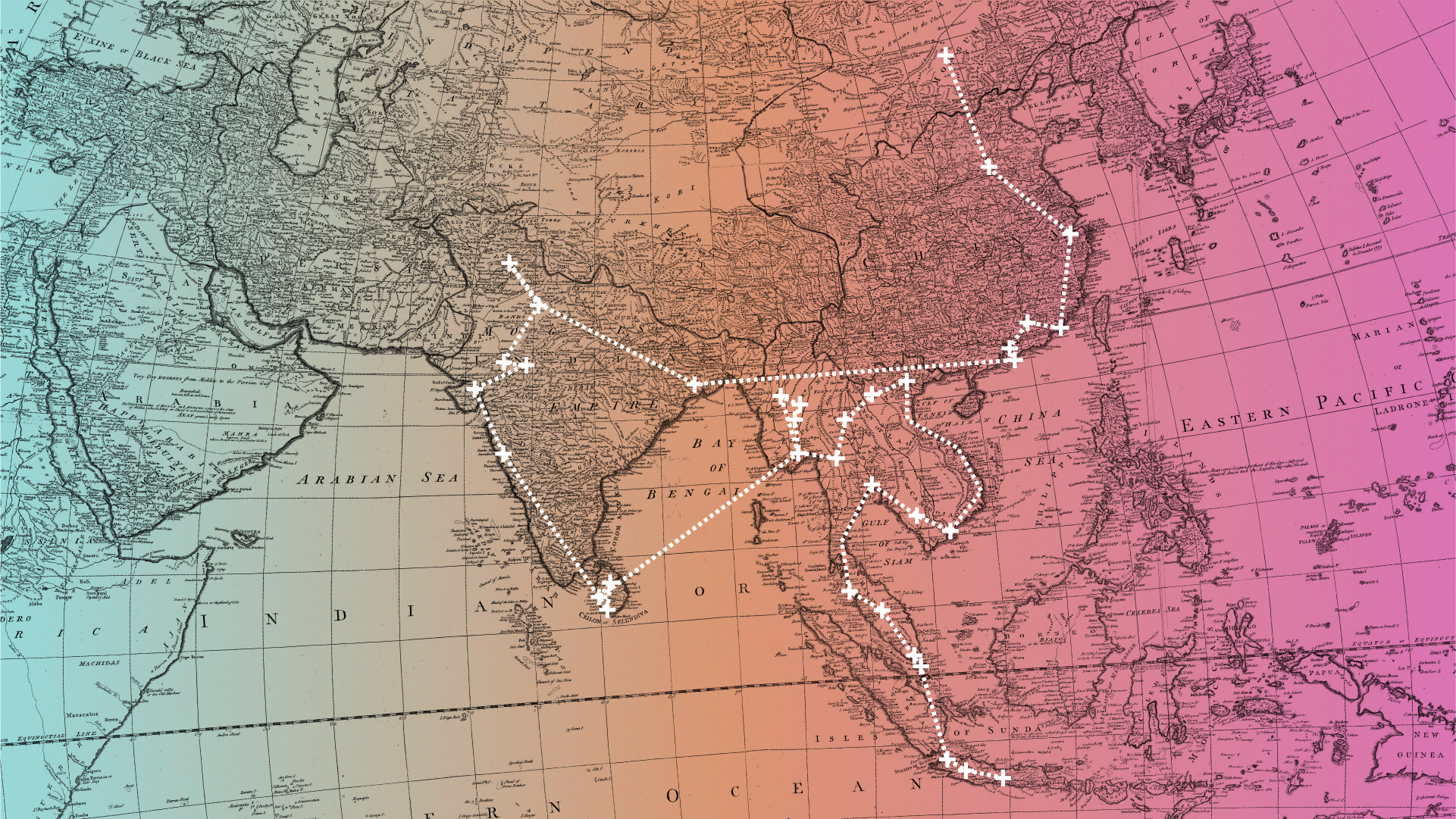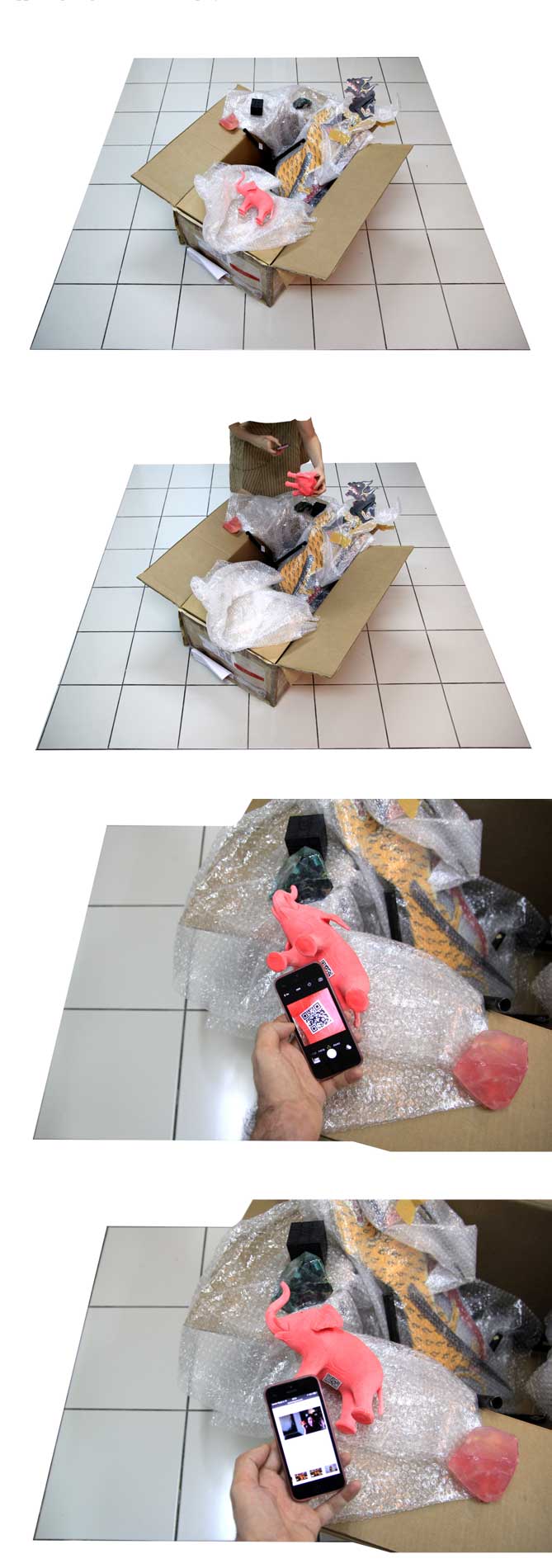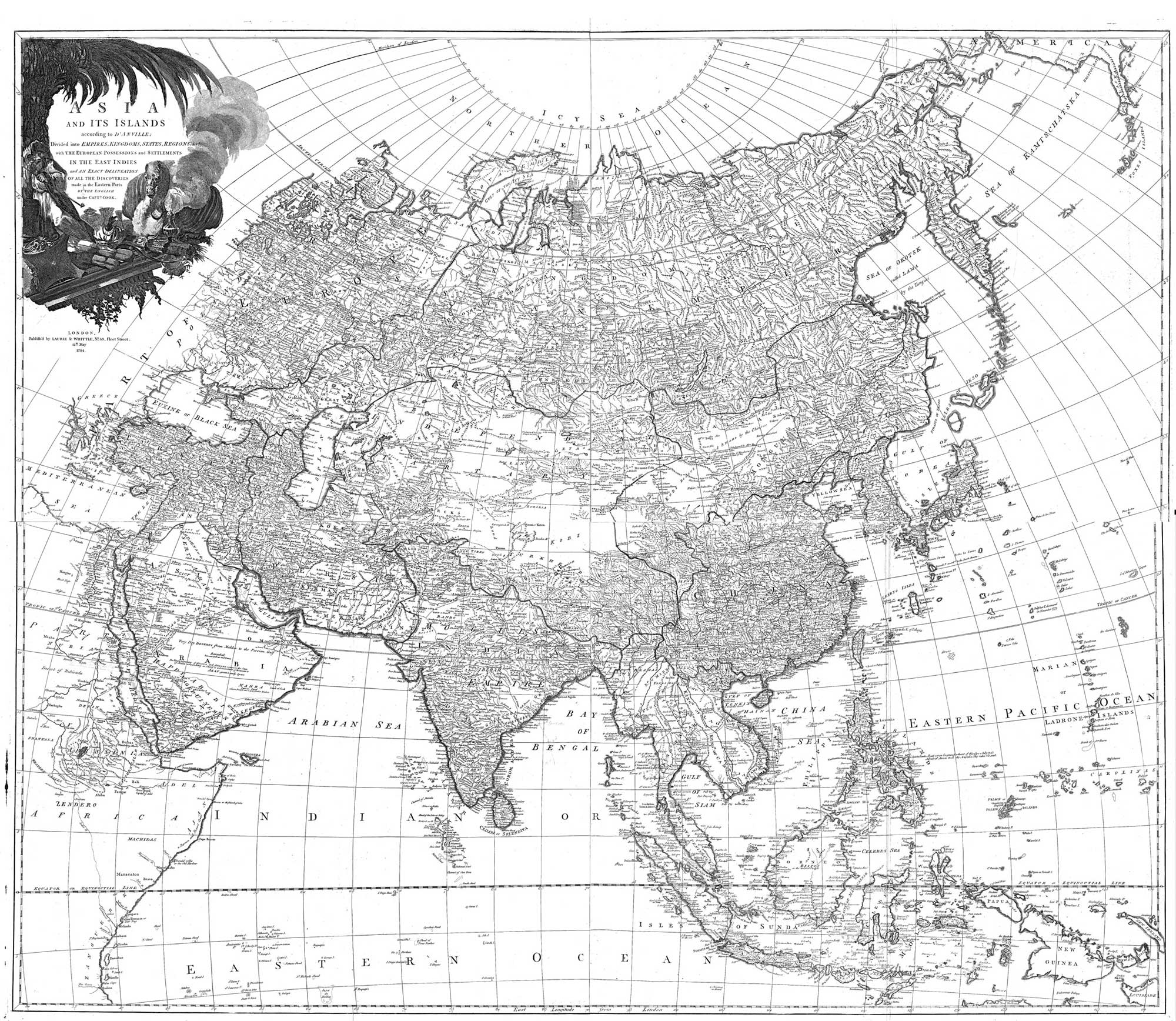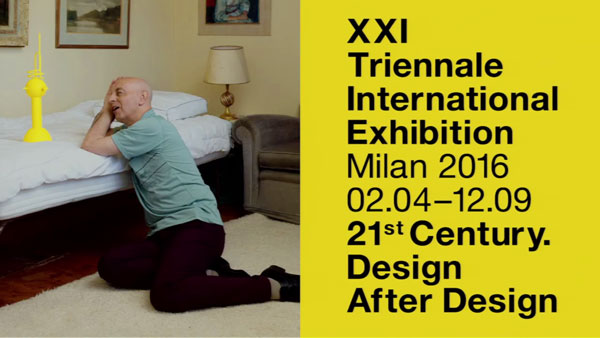reorientXpress
Location: Indonesia, Singapore, Malaysia, Thailand, Cambodia, Vietnam, Laos, Myanmar, Sri Lanka, India, Hong Kong, China & Mongolia Type: Itinerant research project / Installation
Status: open ended
Year: December 2014-July 2015
Collaborators (video editing): P. Wannasawang, N. Lasavanich, K. Vanapruks. Webpage: www.reorientxpress.com
Location: Indonesia, Singapore, Malaysia, Thailand, Cambodia, Vietnam, Laos, Myanmar, Sri Lanka, India, Hong Kong, China & Mongolia Type: Itinerant research project / Installation
Status: open ended
Year: December 2014-July 2015
Collaborators (video editing): P. Wannasawang, N. Lasavanich, K. Vanapruks. Webpage: www.reorientxpress.com
Exhibited:
XXI Triennale of Milan, 2015
Beijing Design Week, 2016
reorientXpress is a journey of dialogues with designers and a wide range of other actors involved in the process of transformations of 'urban' environments.
It is an itinerant project across South and East Asia to implement interdisciplinary debate about the changespropelled by globalization and by the increasing struggle for perpetual growth at a turning point after modernism and its full deconstruction.
The project has been developed along a journey, mostly over land, started in Singapore in January 2015 and ended in Ulaanbaatar, Mongolia in July 2015, with a preliminary chapter in Java, Indonesia in November 2014.
Travelling through 13 countries (Indonesia, Singapore, Malaysia, Thailand, Cambodia, Vietnam, Laos, Myanmar, Sri Lanka, India, Hong Kong, China & Mongolia) for more than 20000km reorientxpress has collected the point of view of 90 contributors of different backgrounds, cultures, disciplines, ages, races, etc.
The dialogues focus on few specific topics that are key in the 'urban age', outlined by dichotomies of concepts that usually reveal different approaches between East and West. By putting them on equal level it tries to reconsider crystallized positions and envision potential futures.
Within the relatively contained circle from Jakarta to Beijing lives more than half of the world population and are located most of the metropolises with over 10 million inhabitants. Closely related to these records are the growing environmental unbalances and the extreme inequality of societies, which have seen their habits getting deeply transformed in an incredibly short timespan.
From experimental urban research, to the creation of new high-end lifestyles, to a deep engagement in community development and cooperation, or to the necessary confrontation between global influence and local identities, the disciplines of design and their contiguous fields, divided in multiple diverse trajectories, are undergoing a very dynamic moment in every region of Asia
XXI Triennale of Milan, 2015
Beijing Design Week, 2016
reorientXpress is a journey of dialogues with designers and a wide range of other actors involved in the process of transformations of 'urban' environments.
It is an itinerant project across South and East Asia to implement interdisciplinary debate about the changespropelled by globalization and by the increasing struggle for perpetual growth at a turning point after modernism and its full deconstruction.
The project has been developed along a journey, mostly over land, started in Singapore in January 2015 and ended in Ulaanbaatar, Mongolia in July 2015, with a preliminary chapter in Java, Indonesia in November 2014.
Travelling through 13 countries (Indonesia, Singapore, Malaysia, Thailand, Cambodia, Vietnam, Laos, Myanmar, Sri Lanka, India, Hong Kong, China & Mongolia) for more than 20000km reorientxpress has collected the point of view of 90 contributors of different backgrounds, cultures, disciplines, ages, races, etc.
The dialogues focus on few specific topics that are key in the 'urban age', outlined by dichotomies of concepts that usually reveal different approaches between East and West. By putting them on equal level it tries to reconsider crystallized positions and envision potential futures.
Within the relatively contained circle from Jakarta to Beijing lives more than half of the world population and are located most of the metropolises with over 10 million inhabitants. Closely related to these records are the growing environmental unbalances and the extreme inequality of societies, which have seen their habits getting deeply transformed in an incredibly short timespan.
From experimental urban research, to the creation of new high-end lifestyles, to a deep engagement in community development and cooperation, or to the necessary confrontation between global influence and local identities, the disciplines of design and their contiguous fields, divided in multiple diverse trajectories, are undergoing a very dynamic moment in every region of Asia




